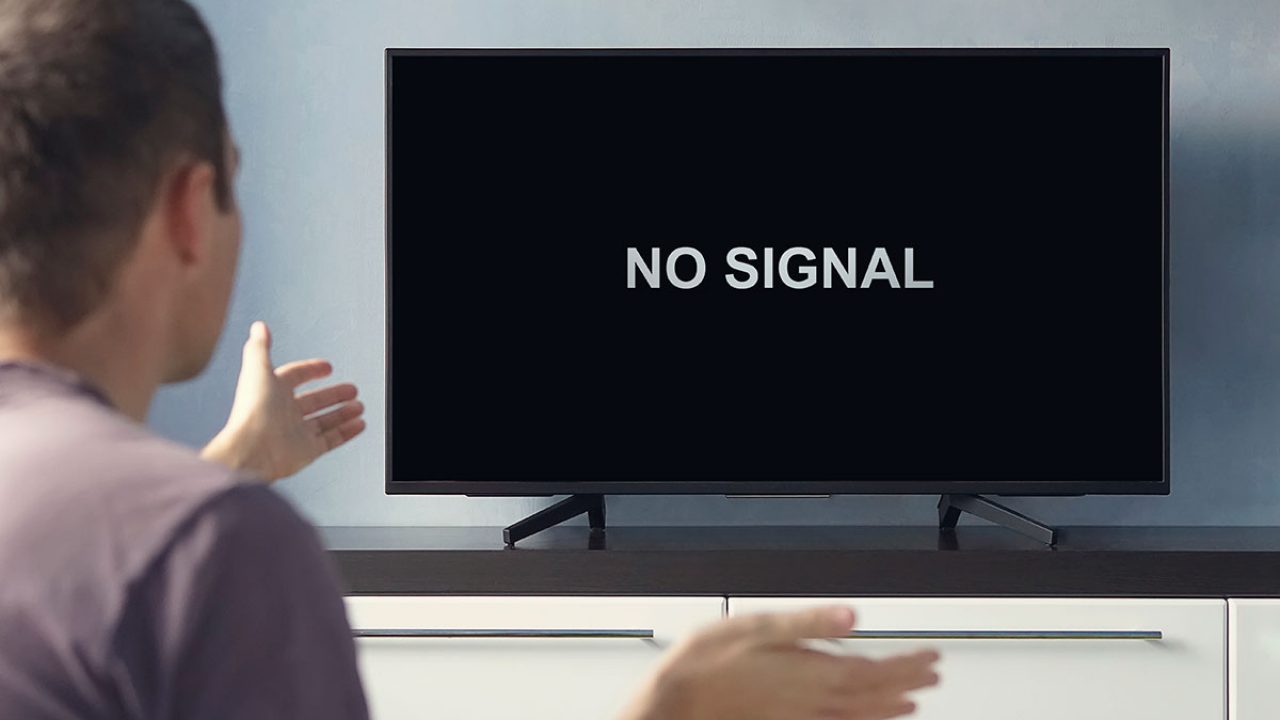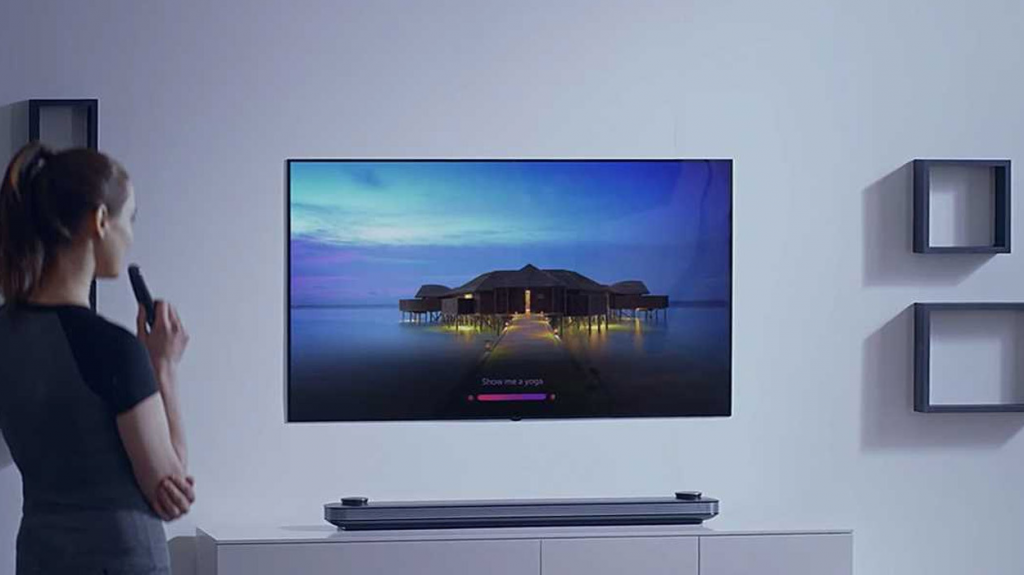Is the Extended Warranty on a TV Worth It?

Most people will tell you to avoid buying an extended warranty because it will rarely offer additional benefits. But this wouldn’t be accurate advice because not all warranty policies are misleading or outright scams.
Read on to find out more about extended TV warranties before deciding.
What Is an Extended TV Warranty?
You can think of an extended warranty as an insurance policy that comes at a fixed price. However, the extended part of the warranty often includes additional perks that a standard manufacturer’s warranty doesn’t offer.
But whether you should or shouldn’t buy it requires a deeper analysis of this type of policy.

General Policy Coverage Benefits
Usually, a standard manufacturer’s warranty will cover repairs or replacements should your TV malfunction because of improper manufacturing, configurations, etc.
However, other damages or normal wear might not qualify your TV for free repairs.
This is where an extended warranty can start to seem appealing. Things like preventative maintenance and power-surge protection can be highly beneficial. That’s because, in most cases, a power spike that damages your TV is considered your fault in a standard manufacturer’s warranty.
Furthermore, an extended warranty might entitle you to free pickups or at-home maintenance. This can save you time and transportation money if and when your TV needs maintenance or repairs.
Another way an extended warranty differs from a standard one is the range of repairs you might be entitled to. Sometimes a standard warranty won’t cover certain internal components, the IR sensor, software, buttons, and other pieces, while an extended warranty will.
An extended TV warranty might also include configuration, device recalibrations, and even higher priority for over-the-phone troubleshooting.
Downsides You Should Know About
One of the biggest downsides of extended TV warranties is not benefiting from what’s advertised. You must understand that it’s the salesperson’s job to sell you a warranty that you find appealing.
However, if you don’t read the fine print before buying, you might get a costly five-year commitment with few perks.
For example, many extended warranties are advertised as giving additional coverage for instances of normal wear and power surges. That said, the wording used in the policy can be very specific. If a power spike damages your TV, you can still be found at fault and get disqualified from free repairs.
In addition, you will find that many warranties don’t actually provide extra coverage over the manufacturer’s standard warranty, so you might end up paying a fixed-price insurance policy that won’t lower the costs of future repairs.
Another thing to consider is the cost. An extended warranty for a TV can be very expensive. Vendors try to sell you these warranties because repairs tend to cost more than the warranties. This is what convinces most buyers to spend the extra money.
However, the cost of your TV, its technology, and features will factor into the extended warranty cost.
You can find that two TVs with a $10 price difference might have tens or hundreds of dollars differences regarding their warranties, and that doesn’t mean that the policies can’t be virtually identical.
This is perhaps more unfortunate for TVs in higher price ranges. If you plan on spending over $1,000 for a TV, you can bet that the extended warranty will be costly.

How You Can Get Tricked Into Buying
What makes the extended warranty industry profitable? Users can buy them from everywhere. You don’t have to buy your warranty from the same store or vendor as your TV.
But don’t forget to dig deeper than what’s presented in the advertising. It’s legal for a salesperson to claim that an extended warranty will protect your TV from accidental damage or power surges.

However, warranties legally set clear terms to define what those instances mean. You won’t hear those terms directly from any salesperson.
Imagine someone telling you that accidental damage will be covered for three to five years, and the policy explicitly denies claims due to pet damage, damage caused by a tenant, etc. It’s exhausting to be that exhaustive and will most likely put off promising customers.
Going through the terms and conditions for a TV may seem tedious, but it’s worth it in the long run.
When to Consider an Extended Warranty
Not all extended warranties scam you into paying for the same coverage a standard warranty already provides.
Furthermore, some TVs are more prone to failing. If you can’t afford a high-quality device, perhaps an extended warranty might make more sense.
After all, if you already anticipate many repairs and don’t plan on trading in the TV for a new one after the standard warranty expires, you should try to mitigate the repair costs.
Buying a TV for your kids means putting the TV in a less safe environment. If you constantly throw parties and have many people over, the risks of something bad happening to the device increase.

A higher risk of something going wrong or the TV being stressed beyond its recommended use could make a case for buying an extended TV warranty.
With that in mind, you have to read the fine print and spend less time listening to salespeople. If offers sound too good to be true, they probably are.
But this doesn’t mean the entire industry is crooked. Some extended warranties are worth the price, especially for TV models prone to premature failure.
Whether or not you buy an extended warranty will come down to convenience and preference. If you don’t mind shopping for a policy add-on and doing research, then you could find a budget-friendly warranty with the exact coverage you want.
If researching policies and reading the fine print isn’t for you, you probably shouldn’t give too much thought to an extended TV warranty. It’s easy to get burned by salespeople with these add-ons.
The Pros of Extended Warranties
The overall benefits of extended warranties are straightforward. When they’re not trying to scam you, these warranties give you peace of mind. They can provide a few more years of coverage for potentially costly repairs, upgrades, or part replacements.

Furthermore, in-home service is a massive quality of life improvement, especially if you live outside the city, lack access to convenient transportation, or need something handled quickly.
These are some of the pros of extended TV warranties when the policies are drafted to actually give the buyer extra perks.
The Cons of Extended Warranties
The pricing aspect is the first to pop up in most conversations in terms of cons. Sure, you can potentially spare yourself hundreds of dollars worth of repairs. But what if your TV doesn’t break down while covered by the warranty? You’d end up paying a premium for nothing.
Another downside is that extended warranties can be just as vague and ambiguous as regular warranties. Being able to submit a claim doesn’t guarantee it won’t be rejected. Vendors and manufacturers try to use policy wording to create loopholes.
Those loopholes will legally protect them if they refuse to honor a claim. You’ll have to pay for the repairs yourself while thinking of the money already spent on an extended warranty that didn’t cover the repairs as advertised.

And there’s one more con you should be aware of before buying an extended warranty. Again, this is something you’re unlikely to find out unless you read the fine print.
Sending your TV for repair won’t guarantee a quick turnaround. It may take weeks before your TV is fixed, and it might even break down again due to the same issue. This is because the warranty seller can work with anyone they want.
Your TV won’t necessarily land in the hands of an expert. It’s also possible that the service won’t have the parts your TV needs and has to order them. If that happens, you’re looking at potentially weeks without your TV. But those weeks won’t be added to your extended warranty term.
A Double-Edged Sword Worth Deeper Research
An extended TV warranty is a situational purchase, no matter how you look at it. Research policies and don’t listen to the salesperson.
If the perks and fine print cater to your needs, feel free to buy. But if they don’t, there’s no reason to do so. In most cases, the standard warranty is more than enough.
Please let us know if you have fortunate or unfortunate experiences with extended warranties in the comments section below. And feel free to post additional questions or situations you may need clarifying.
















